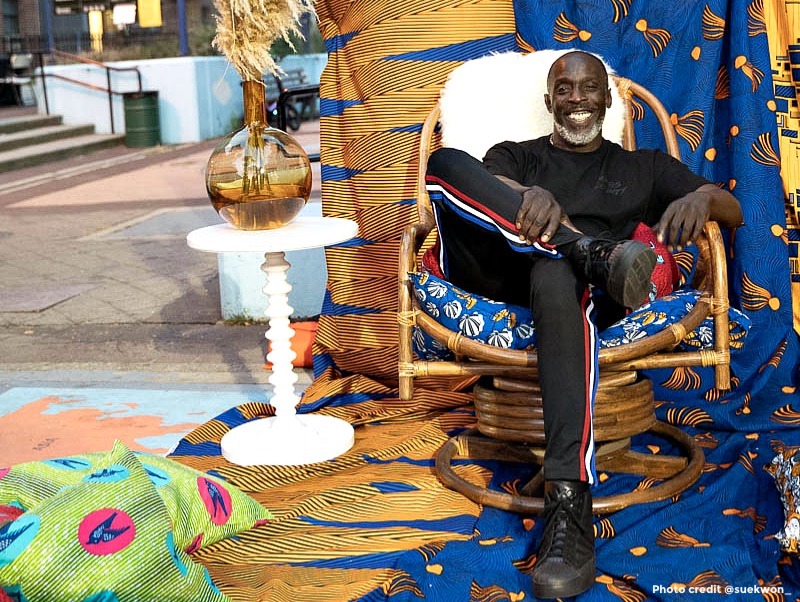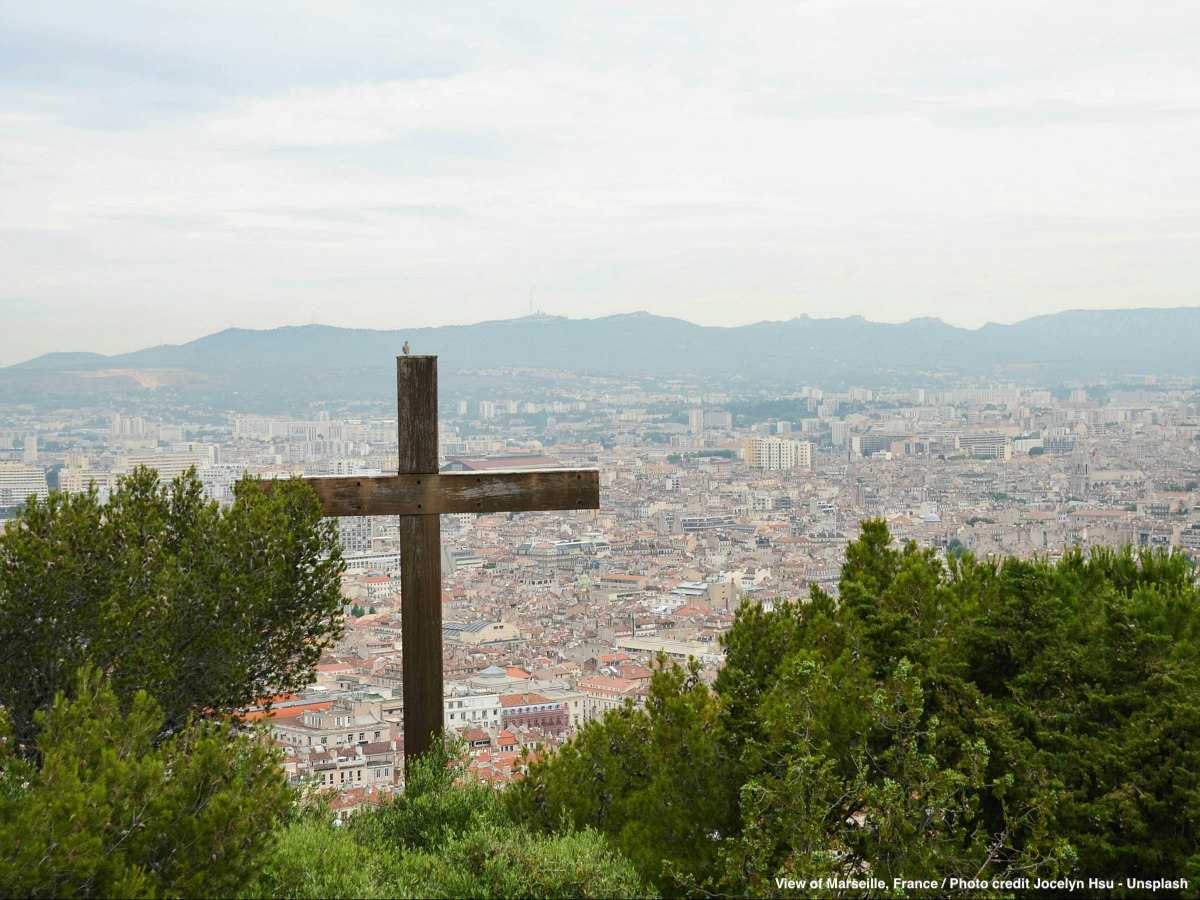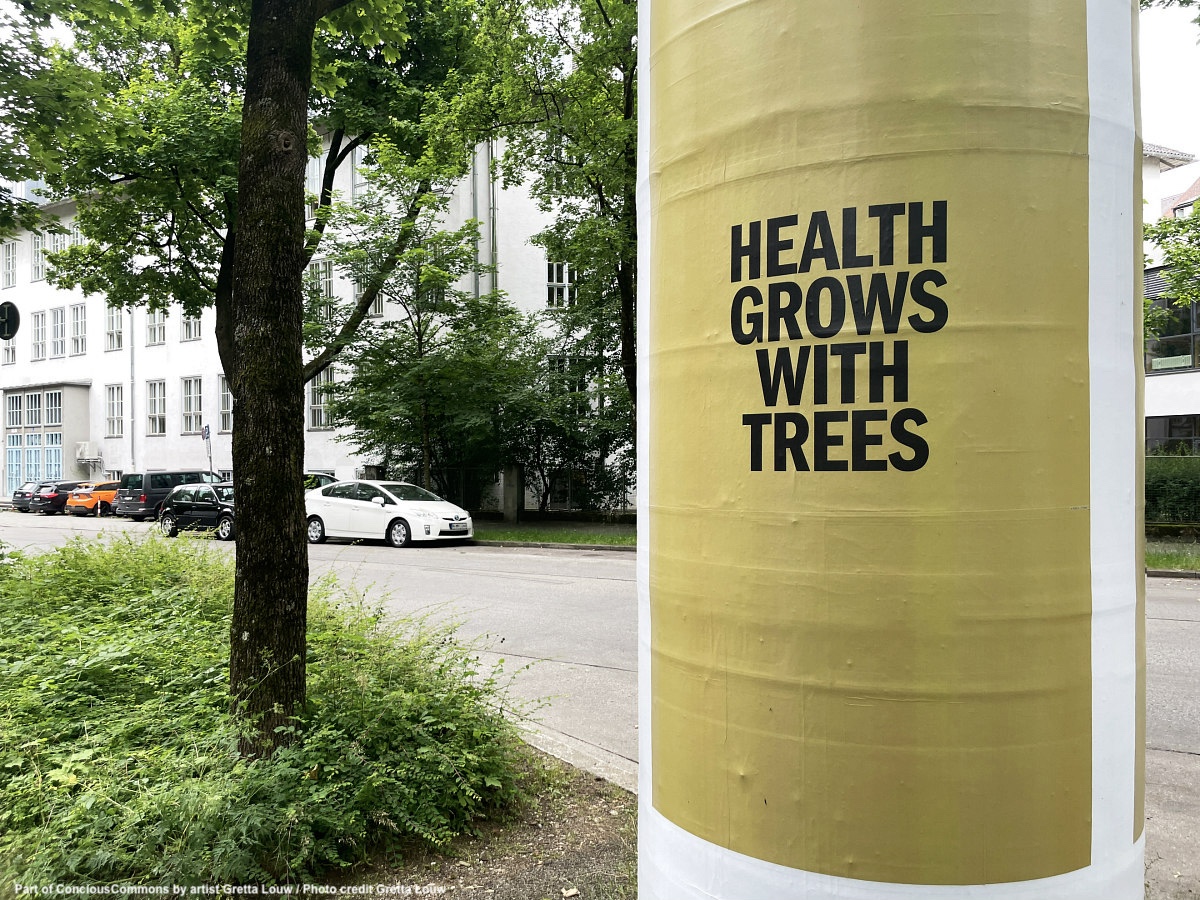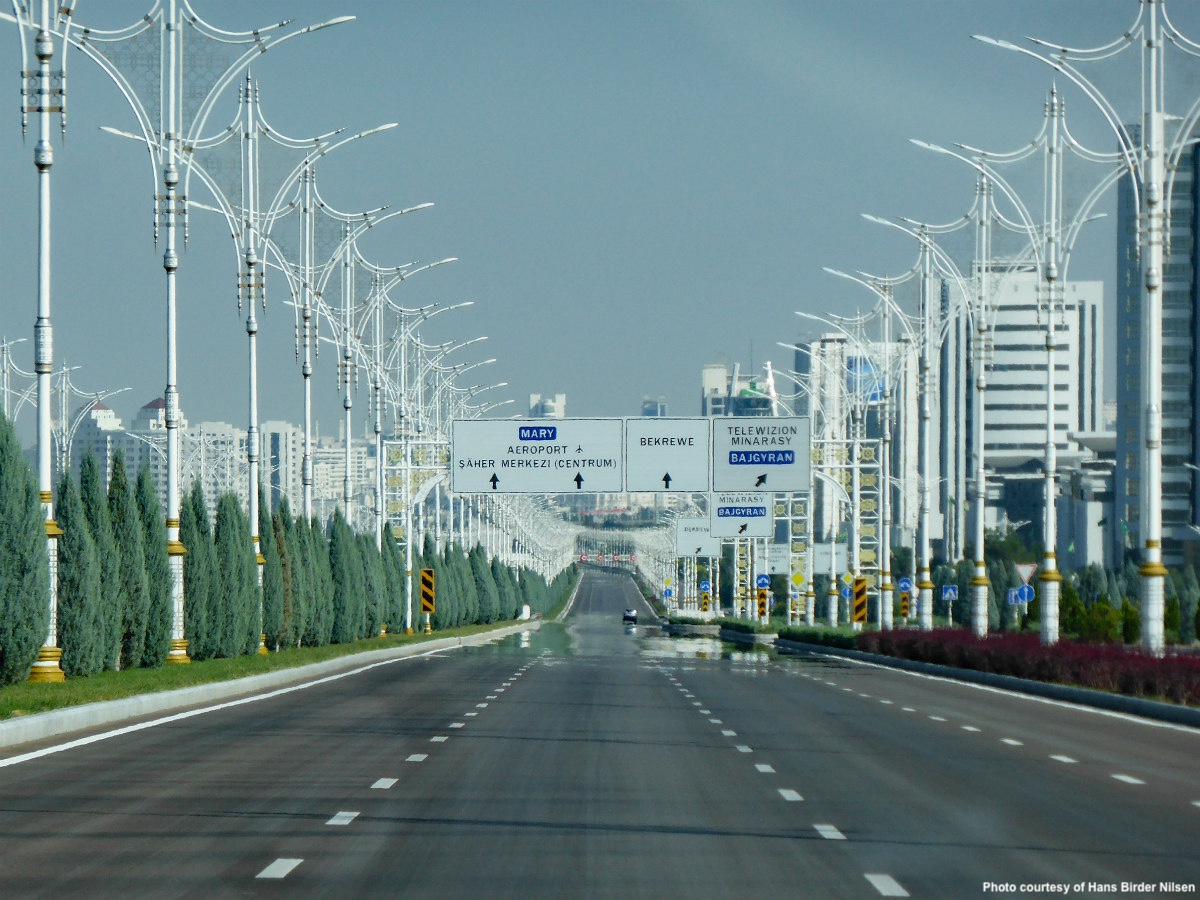Surrounding the trendy Brooklyn neighbourhoods Williamsburg and Park Slope are Brownsville and Flatbush, among others, intentionally deprived communities with some of the most densely concentrated areas of public housing in the United States. For decades, New York’s underserved neighbourhoods have battled the same issues – gun violence, under-resourced schools, food apartheid, lack of employment opportunities and more. Ambition and incredible resilience powered well-known personalities out of these ‘hoods. However, the game is changing and younger generations in Brooklyn are elevating their voices to influence decisions and policymaking that affects their own lives. These youth, known as Crew Count, are transforming how cities think about public safety and empowering the idea of participatory democracy in neighbourhoods where residents could determine and thereby improve their own living environments.
They walk, live, know and are the heartbeat of the block. Behind this community-led movement called We Build The Block is co-founder and executive director Dana Rachlin, who has been a long advocate of social justice for New York’s marginalized and intentionally underserved populations.
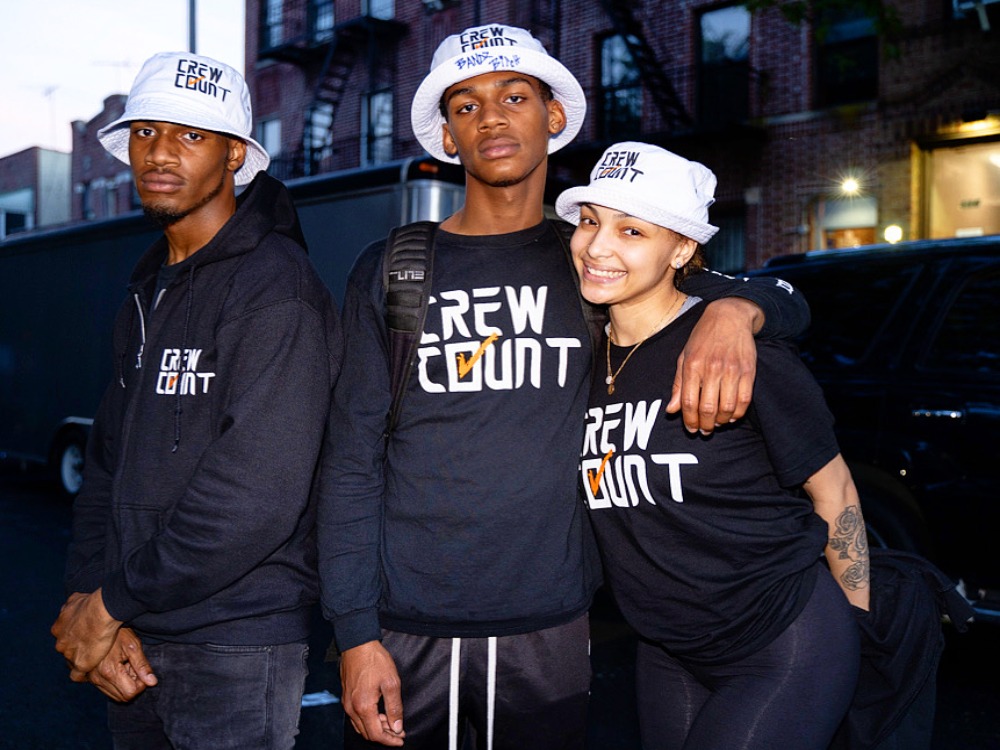
‘I went to a graduation of the Exalt Youth organization where a youth I didn’t even know spoke about their dreams for their futures. I realized I knew incredible men who were living those dreams and would understand who they are. I asked the kids for their numbers and told them to keep Friday night open to join me for dinner. I hit up and said you gotta come to dinner tomorrow and meet these dope kids. Everyone said yes. It was that night – July 2018 that We Build The Block was born,’ explains Rachlin.
Those men were the Hot 97 morning show producer Shani Kulture and the recently deceased actor Michael K. Williams. A previous visit to a high school in The Bronx due to community service had left a mark on Williams. He had openly told kids what he did wrong so that they didn’t make ‘the same dumb choices’ he did. Then the craziest thing happened, he said, I talked, and ‘they were all listening to me. And most importantly, they saw themselves in me’.
Together with Shani Kulture they co-founded We Build The Block. ‘It was magic,’ says Rachlin. Both grew up in Brooklyn and knew they could inspire youngsters for community action on public safety in over-policed neighbourhoods. Every month Michael K. Williams and Shani Kulture would host dinners with different influencers to spark conversations and give hope to local youth.
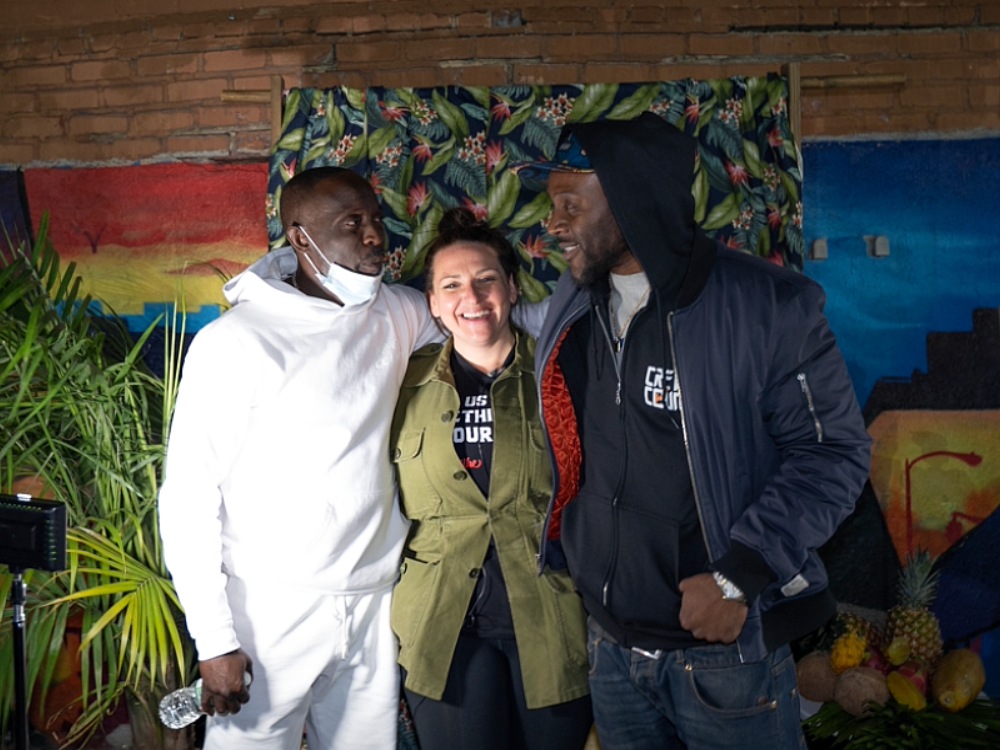
In an interview in the media Williams once questioned, referring to gun violence, why these kids think the solution is that one of them has to go. He spoke of the need to change the narrative breaking cycles of violence. And, he added, we are doing that by educating ourselves and talking openly about mental health and generational trauma, which affects how we make decisions.
Years of over policing, racism and conflicts in neighbourhoods has left hardly any space for a debate on public safety between city councillors, police and neighbours, which tends to spur the development of mutual mistrust and tensions among all and undermines collaboration. In addition, gun violence continues to plague the neighbourhoods most impacted by over-policing, indicating that safety approaches used are not working. Officers are not trained to deal with the grief and trauma left in neighbours of shooting victims and the community and the state is not taking an intentional approach to undoing past harms of disenfranchisement.
All of this required a different idea of policing and public safety. The way to fight back is mobilizing people who were strategically left behind. We Build The Block began asking those people to activate the block, they gave them civic education orientation so that they became the teachers, the educators of the block.
The youth on the block are changing the power dynamics
‘Our work can replace over-policing with better community developed and led models that protect and free us all. We are organizing our voices to advocate for our needs, elect leaders we can hold accountable, and build solutions to the problems we face,’ manifests We Build The Block.
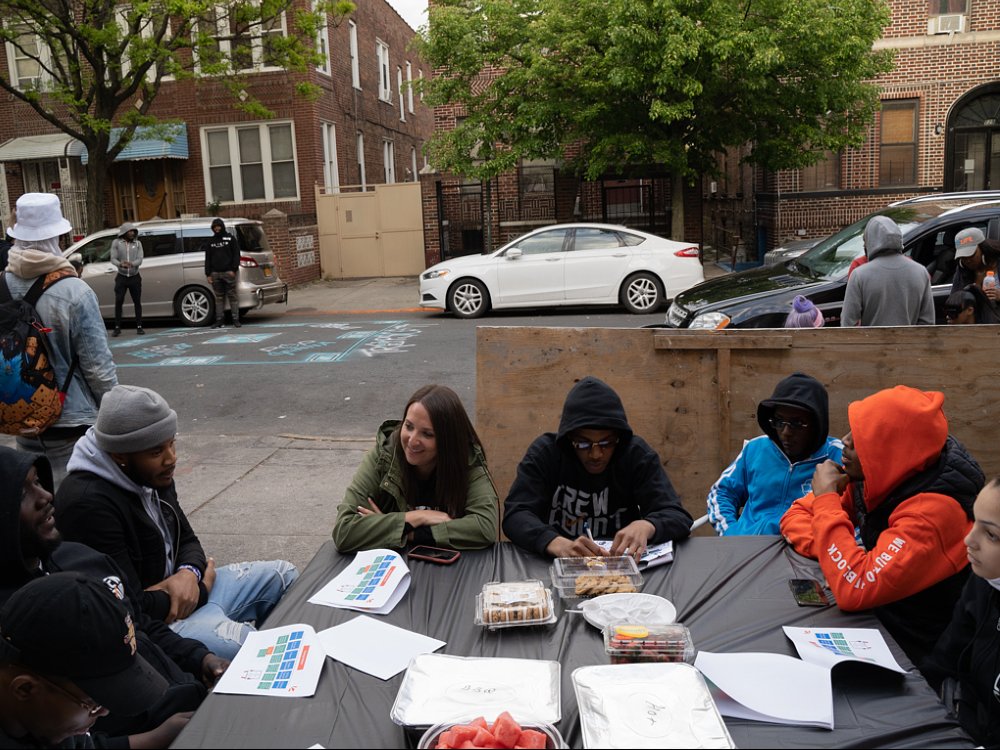
The organization works with community organizations, community experts, and members of the NYPD committed to social justice. It facilitates encounters with youngsters to influence policy and protocol recommendations for a community-led public safety agenda. Moreover, the block residents suggest ideas on community-led shooting responses. Public safety can only be achieved when police act with respect and legitimacy and the community takes ownership of what is happening in their neighbourhood.
It is not difficult to engage people living in the blocks because they have been trying for many years already. However, they were not given the public attention they deserve, claims Rachlin.
In the same manner, We Build The Block is trying to use participatory budgeting and let residents decide how to spend district funds strategically instead of spending huge amounts of money on over-policing. For instance, in Brownsville around 21,000 people live in public housing – the NYCHA owns about one-third of the total housing stock there.
Some years ago The Wilson Center organized an event about Participatory Democracy and Public Housing. One of the real-life examples of participatory democracy in assisted housing and neighbourhood revitalization in the city of Chicago, showed the big difference between the spending priorities of the elected representative for that particular ward and the budgetary allocation made by residents using the participatory budgeting process. Remarkably, participatory democracy proved to be politically popular, people feel more assured and more protected, contributing to increased support for the representative’s reelection.
Voting is an act of rebellion
Already, Rachlin knows that so well. In 2020 We Build The Block went full circle. Rachlin launched the youth organizing arm of We Build The Block called Crew Count together with youth co-founders Jeremiah M.,Colby Dunbar, Royal Hyness Allah and Jahlil Allah. Crew Count is a coalition of youth dedicated to educating peers on the importance of voting, how to vote and the implication it has for the neighbourhood. The questions and answers about new public safety approaches activated in the meetings with councillors and police, actually demand accountability when they get elected.
Most people don’t connect voting to public safety in the way that we should. The mayor picks the police commissioner. Therefore the mayor’s election matters, explains Rachlin.
Crew Count was an immediate response to the injustice made by Operation Crew Cut run by the NYPD. Police started a gang database, adding names of youngsters, mostly black and brown people in underserved communities – upon the criteria of mostly white men deciding whether somebody was or not gang affiliated. People didn’t know if they were on the list, and if so, how to get their names off it and what it meant.
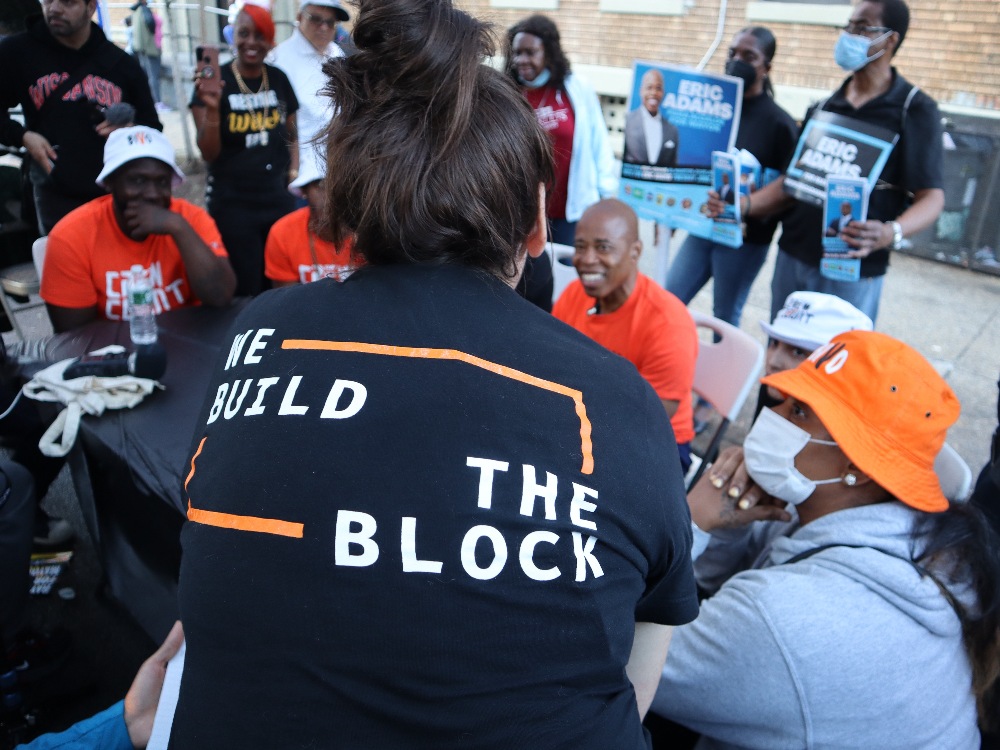
In that environment with a lack of transparency, Crew Count began mobilizing the youngsters who live on those blocks impacted by over-policing and mass incarceration, to get out and vote.
As mayoral elections in New York are approaching next month, organizing the community around voter participation and a new agenda for public safety in 2021 will remain We Build The Block‘s main goals for 2021. They will have tangible outcomes for We Build The Block.
Turning around the city agendas to buck the system is not easy but actionable. The complexity of public safety might impose some limits on direct participatory democracy at the neighbourhood level, but it creates shared interest, a common will and community action, all of which inevitably can hold politicians accountable. When it comes to elections, think how differently an empowered and informed citizen might act.
Despite Michael K. Williams’ passing, his legacy and inspiration will last. He became well-known for his role of Omar, a modern ‘Robin Hood’ in the problematic Eastern and Western neighbourhoods of Baltimore in the TV series The Wire. The show was often described as an accurate portrayal of the American city and how institutions have an effect on individuals. Ten years later We Build The Block was founded.
We Build The Block continues to give a great crew of youngsters in Brooklyn ownership of what is happening in their communities, showing them that they could disrupt violence and achieve public safety when they change and build the block.
